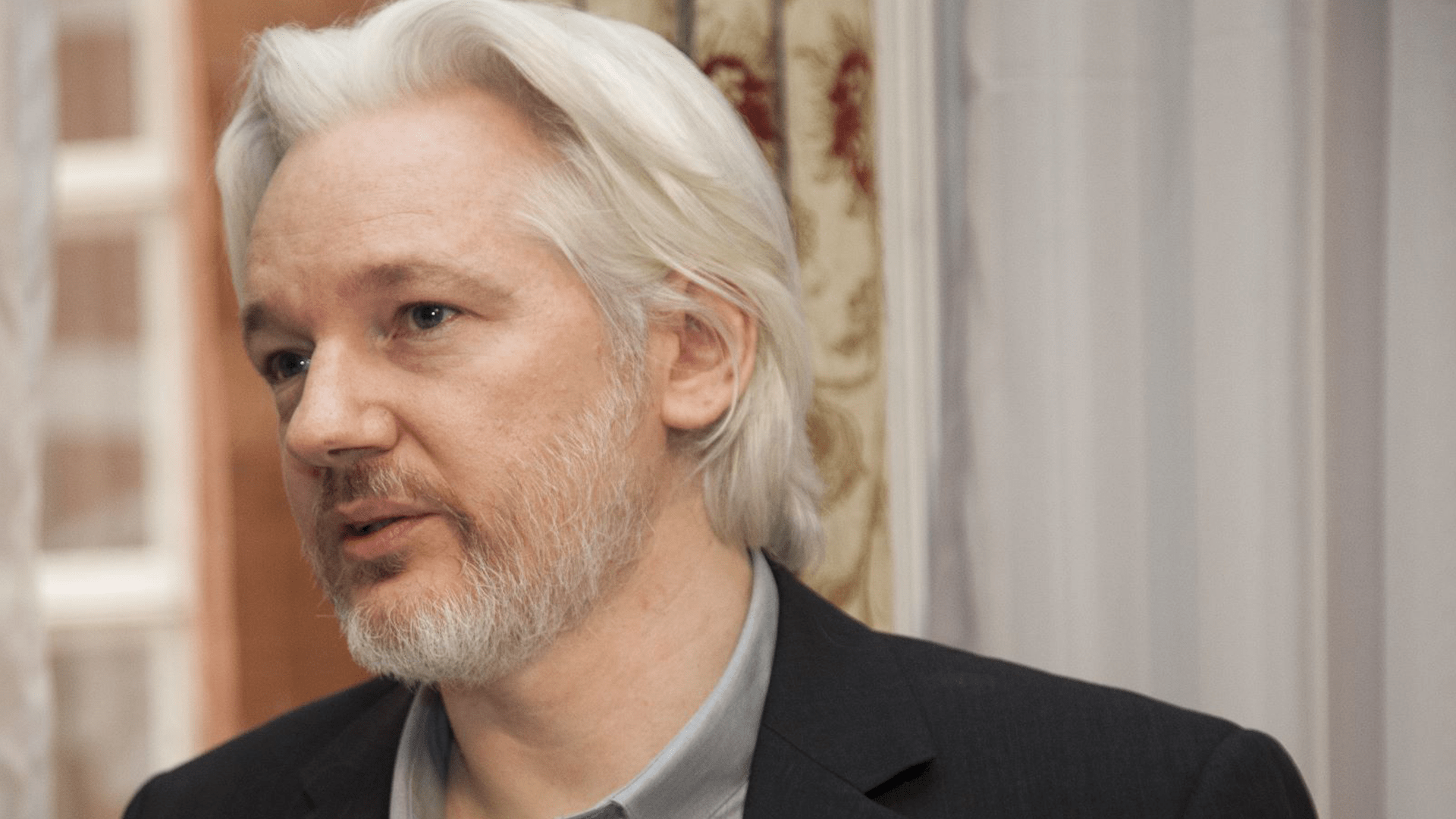Julian Assange, the award-winning journalist, editor and publisher of WikiLeaks, is spending his fourth consecutive World Press Freedom Day incarcerated in London’s Belmarsh prison.
The Australian-born technologist, who has been a union member of Australia’s Media Entertainment Arts Alliance (MEAA) since 2007, continues to challenge a US extradition request for him to face charges under their antiquated and draconian 1917 Espionage Act.
Assange faces 175 years in a US prison for his role in obtaining and publishing a series of documents leaked to him, between 2009 and 2010, by US Army whistleblower Chelsea Manning. Known as the Iraq War logs, Afghanistan War diaries, Guantanamo Bay detainee files and US diplomatic cables, these publications exposed waste, fraud, abuse, torture, and murder — including that of civilians— committed by US forces and their allies.
Appeal at the High Court
The WikiLeaks founder, his family and his legal team continue to wait to hear whether the High Court will consider their latest appeals submitted in June 2022. The defence filed appeals against then-Home Secretary Priti Patel’s decision to grant his extradition as well as against aspects of the January 2021 decision of District Judge Vanessa Baraitser.
In 2021, Judge Baraitser ruled that Assange could not be extradited to the US because the combination of his being autistic along with the torture-like conditions facing him in US custody presented too great a risk that he would commit suicide. Baraitser, however, rejected all the other defence arguments against extradition. After US President Joe Biden’s Department of Justice (DoJ) appealed Baraitser’s refusal to extradite Assange — an appeal originally initiated by Donald Trump’s DoJ — and offered assurances to the UK High Court that Assange would be treated properly, the High Court agreed to reverse Baraitser’s decision.
The current appeals lodged by the defence include submissions that Baraitser erred when she dismissed arguments that:
- the US prosecution violates the right to free speech and the rights of a free press protected under Article 10 of the European Convention on Human Rights;
- the US prosecution is politically motivated; and
- the US extradition request violates the UK-US extradition treaty because it is for political offences.
There is also fresh evidence of a CIA-plot to kidnap and assassinate Assange while he was an asylee in the Ecuadorian embassy as well as further evidence of CIA-sponsored surveillance and recording of all of his private communications, including his privileged legal communications — written and verbal, which Judge Baraitser either wasn’t aware of at the time, ignored or gave insufficient weight to.
Despite Biden’s promises to move away from Trump’s attacks on the press and despite the fact that the worst state abuses in this case appear to have been committed by the Trump administration, Biden has continued with this extradition request. The request is a political decision, he could choose to drop it, but he has chosen not to. The media coverage of Assange’s case, compared say to when Trump insulted and later banned from the White House a CNN journalist who interrupted him and refused to relinquish a microphone, is quite noticeable. There has been far less aggressive coverage of the prosecution and persecution of Assange than one would expect given the wide-ranging implications of this case.
Using Espionage Laws to Target Whistleblowers
The US Espionage Act was ostensibly passed to help protect the country against German spies during the First World War. Although it was ultimately used to round up and imprison thousands of anti-war protesters by the government of Woodrow Wilson. The law would largely fall into disuse until US President Richard Nixon revived it to prosecute the leakers behind the “Pentagon Papers”— Daniel Ellsberg and Anthony J. Russo Jr. — who exposed decades of lies in relation to US-Vietnam relations.
The Governments of George W. Bush, Barack Obama and Donald Trump once again used the Espionage Act to go after whistleblowers, with Obama using the Act to target whistleblowers more than all previous presidents combined.
Crossing the Rubicon to Prosecute Journalists and Publishers
Yet, the prosecution of Assange for his role in obtaining and publishing so called “national defence” information represents the first time in US history that this law is being used to prosecute a publisher.
WikiLeaks, which US courts have recognised as a news and media organisation, is not based in America. Assange, who is not a US citizen and never took an oath to keep US secrets, was not in the US when he was sent the materials in question and neither was his source, Private Manning.
The US government — which has argued that free speech protections guaranteed under the First Amendment don’t apply to Assange because he isn’t from the US — is seeking to apply domestic US espionage laws to prosecute a non-US citizen for journalistic activity engaged in outside of the US.
The 1917 Espionage Act
17 out of 18 charges on the indictment in this case are brought under the 1917 Espionage Act, each charge prescribes a maximum of 10 years in prison. One charge for “conspiracy to commit computer intrusion”— brought under the Computer Fraud and Abuse Act — prescribes a maximum of five years imprisonment.
The prosecution does not need to prove any harm to national security or to any individual in order to secure a conviction.
The intentions or mental state of a defendant are irrelevant and cannot be raised in court.
The contents of any materials a defendant is being charged with possessing or sharing are irrelevant and can’t be raised in court.
The Espionage Act offers no public interest justification or journalistic defence that would permit publication.
The indictment filed against Assange was also lodged in the eastern district of Virginia, where the majority, if not all, of the jury currently work, used to work, or be related to those who do work within the US armed forces national security apparatus (e.g. CIA, NSA, FBI, Homeland Security).
Although its use in this case is a clear violation of the First Amendment to the US constitution which guarantees the right to free speech and a free press, history has proven that is no bar to its application— as thousands of anti-war activists discovered over 100 years ago.
A Threat to Investigative Journalism Everywhere
“The broad and vague nature of the allegations against Mr Assange, and of the offences listed in the indictment, are troubling as many of them concern activities at the core of investigative journalism in Europe and beyond” the Council of Europe’s Human Right’s Commissioner, Dunja Mijatovic, wrote in a letter to Priti Patel in May 2022. Mijatovic, who previously articulated her opposition to Assange’s extradition to the US to face charges for his publishing, insists that “allowing Mr Assange’s extradition on this basis would have a chilling effect on media freedom, and could ultimately hamper the press in performing its task as purveyor of information and public watchdog in democratic societies.”
Years of lobbying by Assange’s friends, supporters and civil society organisations appears to be bearing fruit as more and more parliamentarians and congressmen in Australia, the US, the UK and beyond are coming out against his prosecution.
“Four years ago today, Julian Assange was arrested for publishing the truth. I’m leading a letter to Attorney General Garland urging him to uphold the freedom of the press by dropping these Trump-era charges and withdrawing the extradition request” US Congresswoman Rashida Tlaib said in relation to an open letter signed by seven Democrats and sent to Biden’s Attorney General in April.
That same day a separate letter signed by over 30 UK parliamentarians from six parties as well as independent MPs and Lords also asked the US Attorney General to drop the charges.
It would “clearly have a chilling impact on journalism and would set a dangerous precedent for other journalists and media organisations” the MPs insist, were Assange to be extradited to face life in prison for work he “carried out in the United Kingdom and in partnership with globally leading news outlets.”
“Globally leading human rights organisations such as Amnesty International and Reporters Without Borders have also warned against the impact of extradition and called on the United States to drop the charges” the letter continues.
“[W]e request that you take a stance to uphold the First Amendment of the US Constitution and drop the extradition proceedings to allow Mr Assange to return home to Australia.”
Mohamed Elmaazi
Mohamed Elmaazi is the new Editor-in-Chief of Truth Defence. He is a UK-based researcher and journalist who writes on a variety of subjects including geopolitics and legal encroachments upon on civil liberties and human rights. Mohamed has covered all of Julian Assange's extradition hearings. His work has appeared in numerous outlets including The Dissenter, Consortium News, Jacobin, The Canary, The Grayzone, The Real News Network, the BBC and The Guardian. He also publishes articles via his website TheInterregnum.net. You can follow him on Twitter @MElmaazi.

